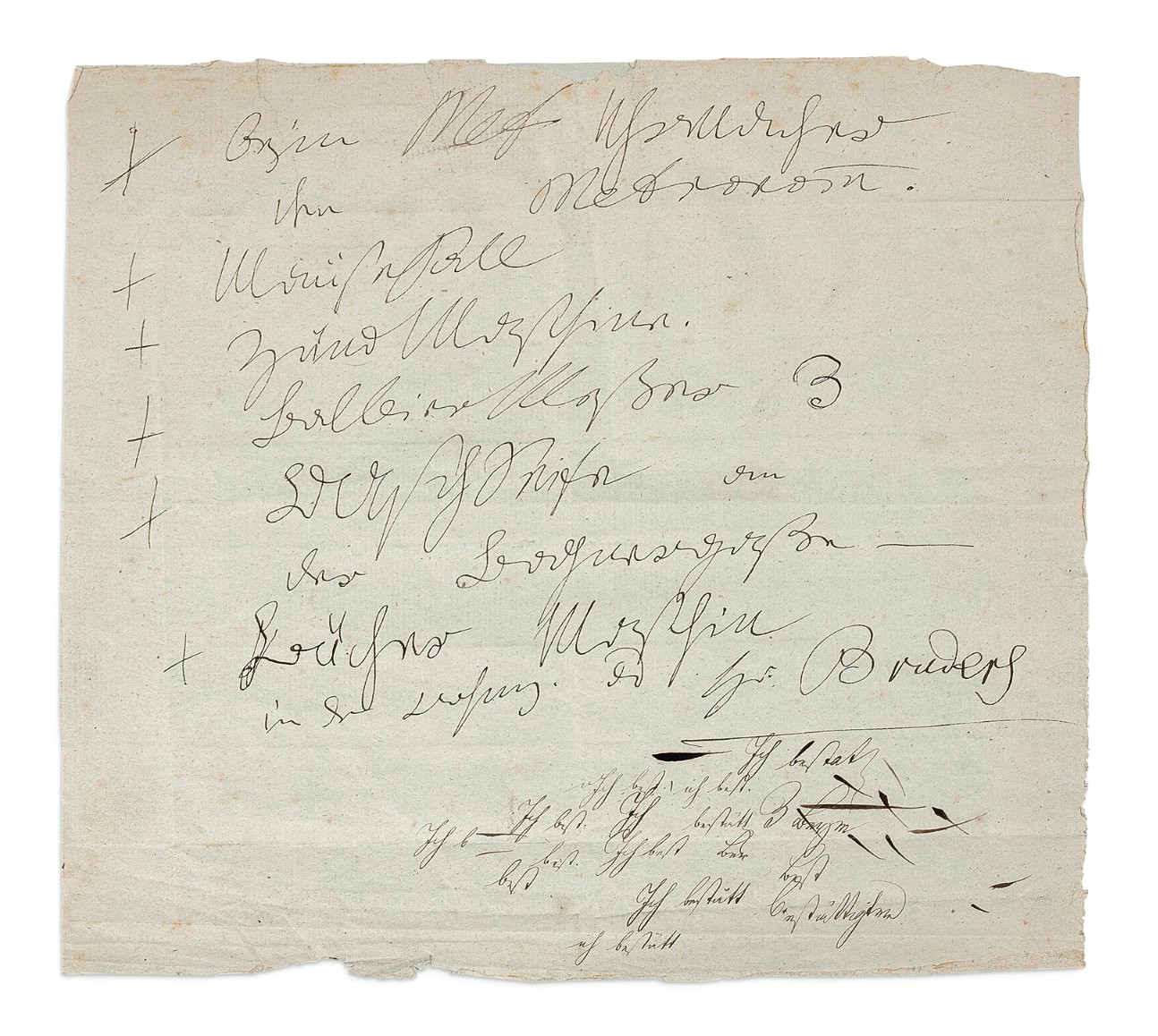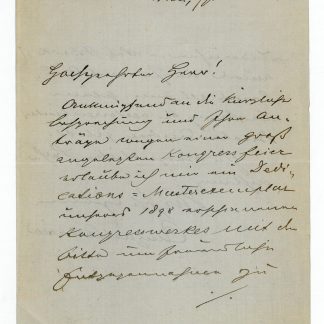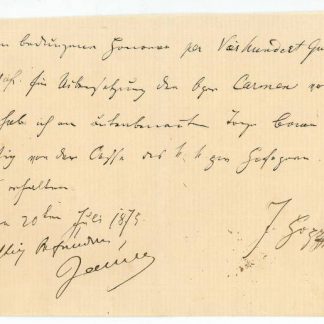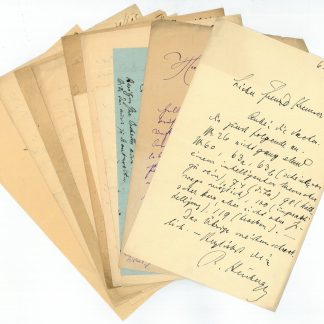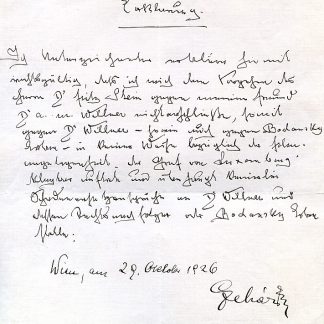[SOLD]
This item has sold. We are always interested in acquiring another copy or any item of comparable quality.
A To-Do List for Beethoven's Servant
Autograph document.
Oblong 4to (248 x 230 mm). 1 page (9 lines). Ink on paper. Watermark: "Iglau Alten Berg".
A shopping list, written for a servant, comprising six items to be obtained in Vienna: "Beym Met Uhrmacher den Metronomm. / MäuseFall / ZündMaschine / BalbierMeßer 3 / WaschSeife an der Bognergaße / Bücher Maschin in der Wohn[un]g des Hr. Bruders" ("Metronome at the watchmaker's; mousetrap; lighter; 3 razors; washing soap from Bognergasse; book machine in my brother's flat"). Below are some pen tests in another hand.
The "metronome watchmaker" must be the mechanic Johann Nepomuk Mälzl, the inventor of this device, who also had long built ear trumpets for the increasingly deaf composer. The soap was very probably purchased at the well-known spice store and druggist "Zum schwarzen Kameel" in Vienna's Bognergasse (no. 340). The last item on the list gives an indication of the date of the autograph: after his brother Kaspar's death in Vienna in 1815, Beethoven took his nephew Karl, then nine years of age, under his tutelage. In 1816 he entrusted Karl to the private school of Cajetan Giannattasio del Rio in Vienna. The item referred to as the "book machine in my brother's flat" could be a so-called reading machine - a wooden letter case with letter boards and a reading board, used for reading instruction. This would be consistent with Beethoven's efforts to educate his young nephew, around the year 1817. The commissioning of a metronome would correspond well to this dating: Beethoven closely followed Mälzel's work on his metronome project, which then had just been completed, and he was the first composer to publish a work with metronomic times.
Traces of old folds; somewhat irregularly torn along the edges. Provenance: auctioned in Cologne in 2011 as "the world's most expensive shopping list"; since kept in a private French collection, from which it was acquired.

